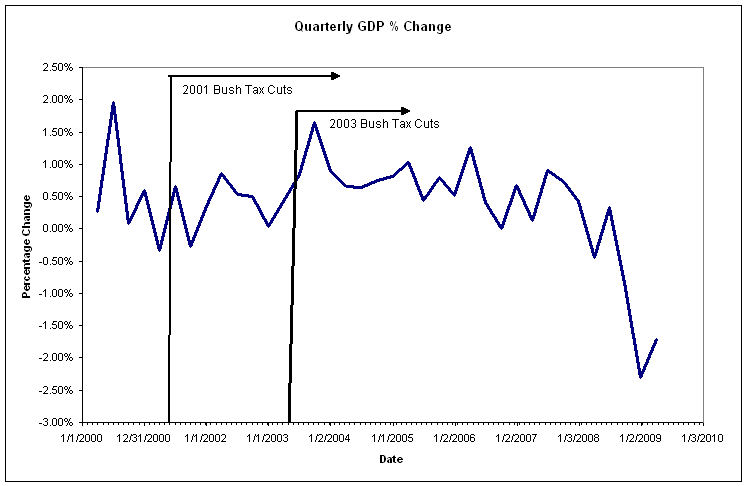Toddsterpatriot
Diamond Member
the empirical evidence in the US is that cutting income taxes reduces revenues.
the objective is not to raise money for liberal fools to waste but to keep money in the hands of those who earned and can invest it wisely and sustainabley to boost the economy. Yes, not all income tax cuts are supply side income tax cuts . Bush's 2003 supply side tax are, for example, the ones that worked. Cap gains works, etc.
Supply side economics says that cutting taxes increases revenues. That is generally true for cutting taxes on corporate profits, capital gains to some extent and natural resource royalties. In the US, it is not true for income taxes, except for perhaps extremely high rates. Thus, supply side dogma fails on the biggest revenue generator for the federal government.
Cutting taxes AND cutting spending generally but not always increases economic growth.
Supply side economics says that cutting taxes increases revenues.
It does? I think you're mixing supply side with the Laffer Curve.....
